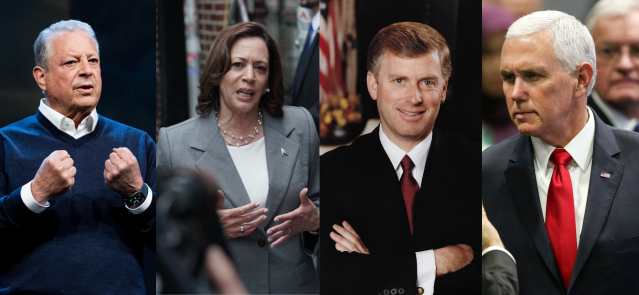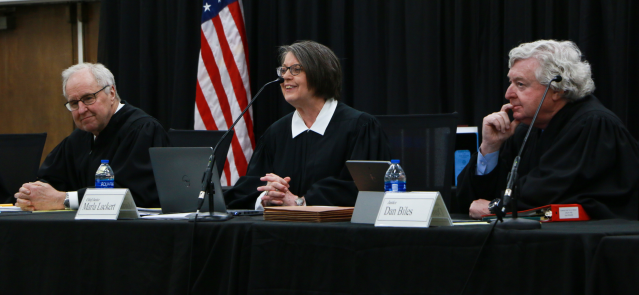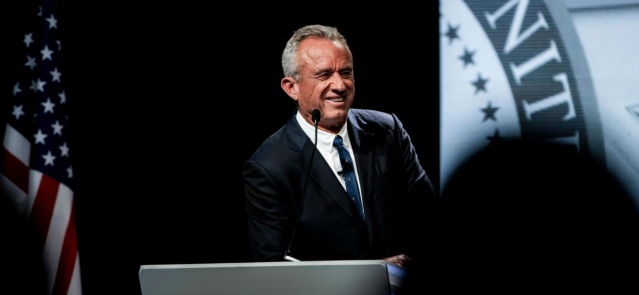The Dobbs decision doesn’t “even bring into question” the Kansas Constitution’s implied right to abortion, the Kansas Supreme Court ruled Friday.
The U.S. Supreme Court’s 2022 Dobbs decision, which overturned Roe v. Wade, doesn’t change the way Kansas courts interpret the state’s statutes, Justice Eric Rosen wrote in the majority opinion. In oral arguments, the state argued the 2022 decision has “changed the landscape considerably.”
“The few cases it cites that have been decided since that ruling — one interpreting the federal Constitution and one interpreting the Iowa Constitution — do not control or even bring into question our interpretation of the Kansas Constitution Bill of Rights,” Rosen wrote.
The court said the state didn’t show the law was narrowly tailored to further a compelling interest of the state, affirming the Shawnee County District Court’s permanent injunction against the law.
The Legislature in 2015 passed a bill banning dilation and evacuation (or “D&E”) abortions, a procedure often performed in the second trimester of pregnancy.
In 2019, the state Supreme Court ruled in a landmark decision that the Kansas Constitution grants a fundamental right to personal autonomy — including the right to abortion — and that the government can only limit that right in narrow ways.
Former attorney general Derek Schmidt, now a candidate for the Republican nomination in Kansas’ 2nd Congressional District, in 2021 asked the court to reconsider that ruling.
Rosen said the state argued the original Hodes decision was “flat-out wrong” and attempted to relitigate an settled issue.
“The relevant exception to the law-of-the-case doctrine requires a showing that the original decision was clearly erroneous,” he wrote. “The state has made no such showing.”
Rosen tackled the state’s other arguments, including that the state has a compelling interest in restricting abortion because Kansans have expressed through elected lawmakers that life begins at fertilization.
“That argument runs face first into the August 2022 vote of the people overwhelmingly rejecting a proposed constitutional amendment to give those same elected representatives unfettered regulatory control over abortion,” Rosen wrote.
He also took issue with the state’s characterizations of the dilation and evacuation abortions as “brutal and inhumane,” writing that the state “may have an opinion, but what matters is the evidence.”
Justice K.J. Wall didn’t participate in the 5-1 decision, and Justice Evelyn Wilson concurred and wrote that she believed the 2015 law was unconstitutionally vague. The lone dissent came from Justice Caleb Stegall, who also disagreed with the original Hodes decision in 2019.
In another 5-1 decision, the Kansas Supreme Court also ruled certain rules and regulations on abortion providers as unconstitutional. Wall again didn’t participate, and Stegall dissented.
At issue in Hodes v. Stanek was a 2011 law that imposed new licensing requirements on medical facilities that provide abortion services, along with corresponding regulations created after the law took effect. The court affirmed the Shawnee County District Court’s permanent injunction against that law and regulations.
The state can’t prove its compelling interest, Justice Melissa Standridge wrote for the majority, and the challenged laws don’t stand up under the standard of strict scrutiny.
All laws at question in the case “infringed on a woman’s fundamental right to personal autonomy” as established by the state Supreme Court’s original Hodes decision.
The 2019 ruling also requires that laws that could infringe on that right are subject to strict scrutiny. That means that if a plaintiff can prove even a slight infringement, the burden shifts to the state to prove the law protects a compelling government interest in a narrowly tailored way.
Several justices wrote concurrences in Hodes v. Stanek, including Justice Evelyn Wilson, who expressed concern that the majority opinion in the case “may be retreating from the holding that personal autonomy is fundamental. She argues the two decisions released Friday contain slightly different interpretations of the Section 1 of the Kansas Constitution’s Bill of Rights.
“In effect, Kansans now have two opinions, released on the same day, and joined by the same majority, which may interpret their rights differently,” Wilson wrote. “That’s a problem.”
Stegall, in a lengthy dissent, called the decision a “legal mess” and suggested that the majority in Hodes “put the entire administrative state on the chopping block of strict scrutiny.”
Solicitor General Anthony Powell argued for the state in both cases, while Alice Wang and Caroline Sacerdote of the Center for Reproductive Rights, respectively, argued for the plaintiffs.
Nancy Northup, president and CEO of the Center for Reproductive Rights, in a statement called the decisions an “immense victory for the health, safety, and dignity of people in Kansas and the entire Midwestern region, where millions have been cut off from abortion access.”
Attorney General Kris Kobach said in a statement the decision is “as disappointing as it is unsurprising.”
“The Kansas Constitution means what the people of Kansas thought the words meant when they voted to ratify those words,” he continued. “When the word liberty was included in the constitution, no one in Kansas thought they were creating a right to an abortion.”
Brett Stover is a Statehouse reporter at State Affairs Pro Kansas/Hawver’s Capitol Report. Reach him at [email protected] or on X @BrettStoverKS.





